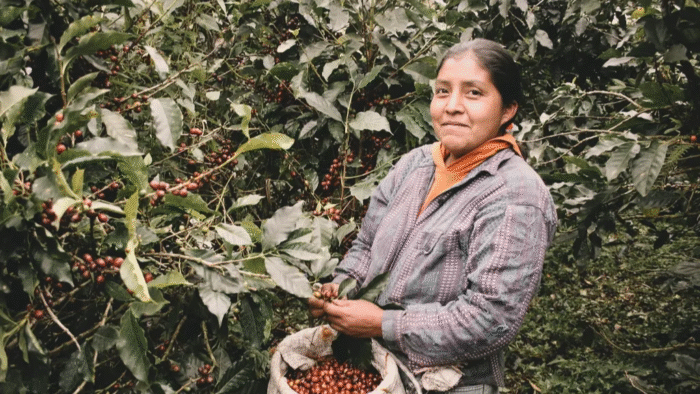The coffee world prides itself on precision. We measure grams, seconds, water temperature, and flavor scores down to decimals. Yet the one thing we almost never measure is the first and only true metric: dignity.
A 90-point Gesha can still come from a farmer who skips meals to pay off debt. A latte art champion can still return home to a barista wage that doesn’t cover rent. A Q Grader can spend years calibrating flavors while being forbidden to question the institution that controls their license. These are not abstract injustices — they are lived realities.
In Colombia, one producer grew a microlot that sold for over $40/kg. Buyers praised its floral complexity, but that price applied only to a few dozen kilograms out of tons of coffee. The rest sold near the global “C” price of about $9/kg. After paying wages, fertilizer bills, loan repayments, milling, transport, and exporter margins, what reached his household was minimal. When his daughter needed urgent medical care, one hospital bill erased an entire season of work. The story of $40/kg was not one of prosperity, but of fragility disguised as success.
Another farmer, with a large plantation and several loyal employees, continually invests in new methods and varieties, even Gesha, financed through loans. Year after year, the books balance at “zero,” but debts grow. Rising prices no longer help. The cycle leads to depression, anxiety, and isolation. A once-respected leader of her community is left paralyzed by despair, with no escape from debt and no way to sell her land without loss.
In Europe, a young barista in a “specialty” café earns barely above minimum wage, scrolling second-hand markets for essentials during breaks. Customers post Instagram photos of their flat whites while she wonders how long until burnout drives her out of coffee.
Even barista champions face indignity. A national winner earns the right to compete on the world stage, but while local sponsors fund flashy events, the champion struggles to cover basic travel and training costs. Salaries remain unchanged, and sponsorship funds often vanish into dinners, rented screens, or private pockets. Her dignity, like her future, was never part of the budget.
The weight of coffee is heavier than sacks. It carries bent backs, stolen hours, and lives strained to the limit. Dignity must be the first measure — before flavor, before scores, before profit.
Consider the boy who dreams of roasting. He works at a small UK roastery, earning fairly, yet knows a decade of saving won’t buy him his own machine. With his father’s help, he purchases a second-hand roaster, fills it with a few bags of safe coffees, and pays for an expensive trade fair stand. His online shop sells barely five bags a week. Each month the dream drains him further. Should he give up?
Flavor notes often mask these realities. We are trained to talk about blueberry, jasmine, and red apple, but not about exhaustion, debt, or fear. This is pointwashing: when numbers and tasting notes plaster over lives in struggle.
At The Better Coffee, we reject this. Our compass is different. Dignity is the baseline: the right to rest without guilt, to pay rent without fear, to speak without punishment, and to imagine a future without shame. Only then does flavor truly matter.
This is not charity, nor corporate social responsibility. It is survival — and justice.
In practice, this means:
-
Buyers can sign contracts that guarantee stable income rather than speculative premiums.
-
Roasteries can redirect marketing budgets to raise barista pay.
-
Trainers can create classrooms open to critical dialogue, even if it challenges established structures.
-
Consumers can ask cafés not only about tasting notes, but how the people behind the coffee are treated.
Dignity is not an optional extra. It is the foundation. Without it, no score, sticker, or award means anything. Coffee does not need to reach 100 points — it needs to meet the needs of those who grow, roast, brew, and drink it. A system that cannot provide dignity is not “specialty”; it is extraction disguised as craft.
So next time you raise a cup, pause. Ask yourself: does this coffee taste of freedom — or of someone else’s unpaid bill?
The post Dignity Before Flavor: Why the First Metric in Coffee Isn’t in the Cup appeared first on Qahwa World.




